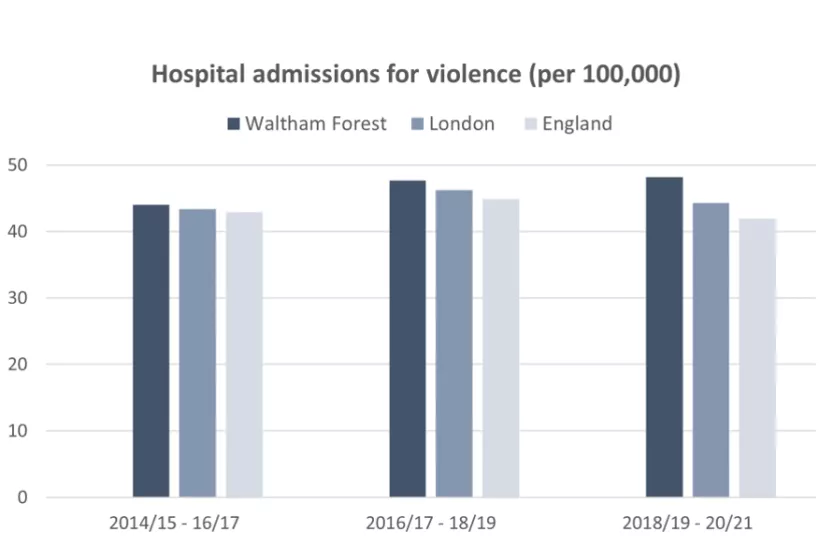Last updated: 20 November 2024
Next review: 20 November 2025
This content is part of the Waltham Forest JSNA. To see other JSNA content, visit the JSNA landing page
Violence has detrimental effects on health, well-being, and the economy. However, it can be prevented through cost-effective measures. Early interventions, in particular, not only deter violence but also enhance educational outcomes, employment prospects, and long-term health. Violence shows one of the strongest inequalities gradients, with emergency hospital admission rates for violence being around five times higher in the most deprived communities than in the most affluent [1].
The three-year rate of emergency hospital admissions for violence, including sexual violence in Waltham Forest was 48 per 100,000 in 2018 to 2019 and 2020 to 2021. This rate is higher than both the England and London averages (41.4 per 100,000 and 44.3 per 100,000 respectively). In recent years, Waltham Forest has seen a slight increase in the rate of emergency hospital admissions for violence, similar to trends seen nationally and regionally.

Source: OHID Public Health Outcomes Framework. Data from Hospital Episode Statistics. Date accessed: 26 March 2023.
Reference:
[1] North West Public Health Observatory (2012). Protecting people, promoting health: A public health approach to violence prevention for England. Data accessed: 19 May 2023